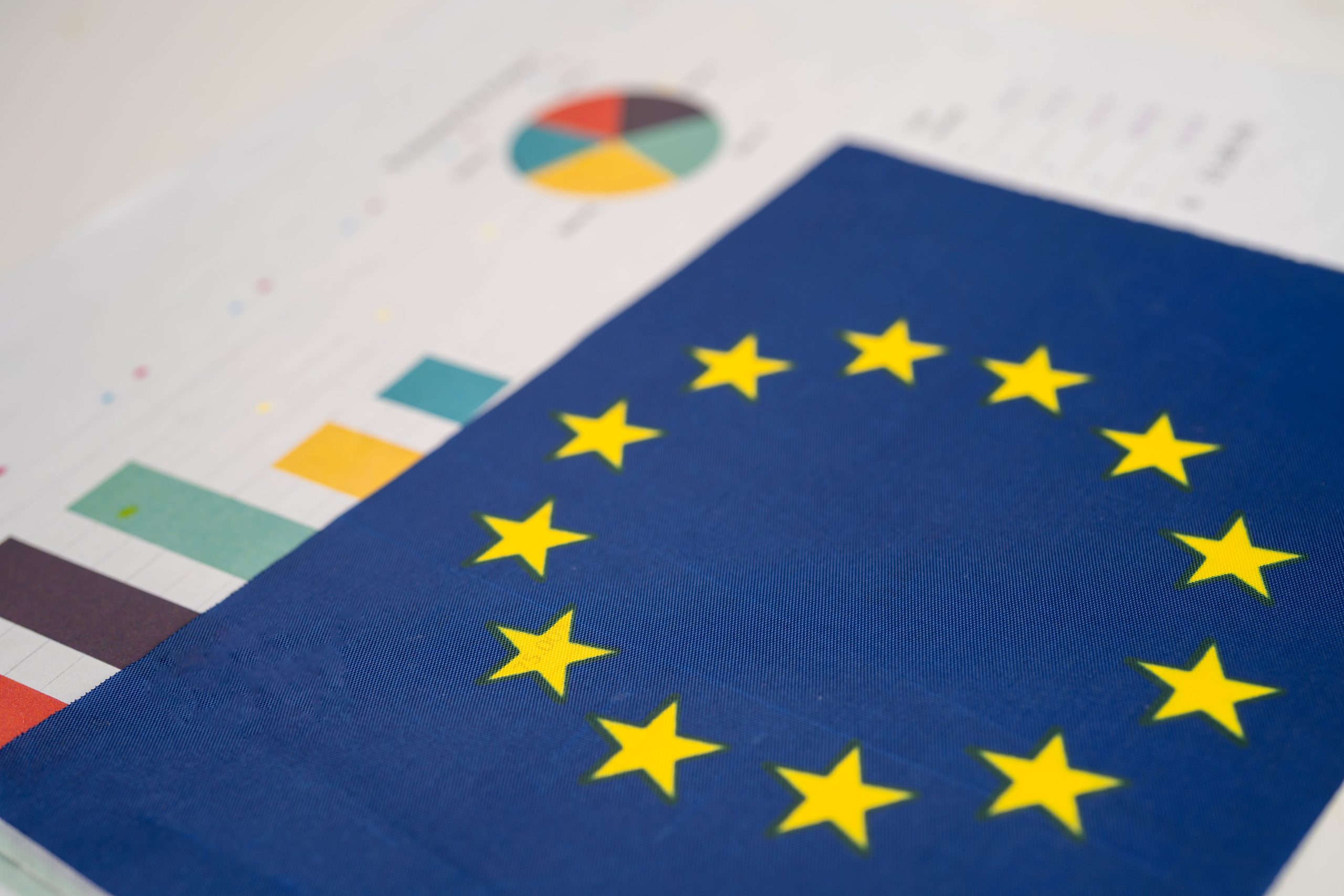In the vibrant tapestry of global commerce, Europe shines as a beacon of opportunity for international businesses. Yet, navigating this continent’s diverse cultural and regulatory landscapes is akin to mastering a complex dance—one that demands finesse, adaptation, and a keen sense of rhythm. Networking, in this context, transforms from a mere business strategy into the very lifeline that can propel a company from obscurity to prominence within the European market.
The allure of Europe lies not just in its economic might, with powerhouse economies offering a treasure trove of opportunities, but also in the rich cultural diversity that beckons innovative collaborations and fresh perspectives. However, this diversity also presents a formidable challenge; what works in one country may falter in another, demanding a tailored approach that respects local nuances.
Embracing the challenge of building a network in Europe, therefore, is more than a strategic move—it’s a bold step towards unlocking the doors to a realm of untapped potential. It’s about making connections that transcend borders, fostering relationships that flourish over time, and weaving your business into the very fabric of the European market. For those ready to embark on this journey, the rewards are not just lucrative but transformative, setting the stage for a truly global impact.
Understanding the European Business Landscape

Navigating Europe’s business landscape is akin to mastering a multilingual dialogue—one that demands a keen understanding of its cultural, regulatory, and economic diversity. For international businesses eyeing expansion, this complexity presents both a challenge and an opportunity. Here’s how to navigate these waters:
Cultural Diversity in Business Practices
Europe’s business environment varies dramatically from north to south, east to west:
- In the Nordic Countries (Sweden, Denmark, Finland, Norway), businesses operate within flat organizational structures, valuing equality, transparency, and open communication.
- Contrast this with Southern Europe (e.g., France, Italy), where businesses may exhibit more hierarchical structures, emphasizing respect for authority and formal decision-making processes.
- Meanwhile, the United Kingdom, despite its departure from the EU, continues to blend formality with a strong emphasis on cultivating long-term relationships.
Regulatory Environment
The European Union (EU) strives for economic cohesion, yet each member state retains its distinct laws affecting business operations—from labor laws to tax regimes.
Furthermore, the EU’s General Data Protection Regulation (GDPR) has introduced rigorous standards for data privacy that have global implications.
Recognizing Regional Differences
The EU versus non-EU distinction is critical. Non-EU countries like Switzerland and Norway, and the UK post-Brexit, operate under unique regulatory and market environments.
Additionally, there’s a contrast between the cost advantages and growing consumer markets of Central and Eastern Europe and the established markets with higher consumer spending power in Western Europe.
Adapting Your Approach
Success in Europe requires more than just understanding these differences; it demands adaptation. Marketing efforts must be tailored to local tastes and preferences, from the product offering to the advertising channels used.
Negotiation tactics also need to be adjusted according to the local business culture, which can vary significantly across the continent. Perhaps most importantly, building and maintaining relationships is key to long-term success in many European markets, requiring a dedicated effort to understand and respect local customs and business practices.
Preparing for European Expansion

Expanding your business into Europe requires meticulous preparation, strategic planning, and a deep understanding of the continent’s diverse landscape. Here’s how to lay the groundwork for a successful European venture:
Researching and Selecting Target Markets
The first step in your European expansion is identifying which markets within Europe best align with your business goals and offerings. This involves:
- Market Analysis: Conduct thorough research on potential markets to understand their size, growth potential, consumer behavior, and competition.
- Cultural Compatibility: Evaluate how well your products or services fit with local cultures and preferences. This might include adapting marketing strategies or even modifying your offerings to better suit local tastes.
- Economic Stability: Consider the economic stability and infrastructure of potential target markets, as these factors can significantly impact your business’s success.
Legal and Regulatory Considerations
Europe’s legal and regulatory landscape can be complex, given the variation across countries and the overarching EU regulations. Key considerations include:
- Compliance: Familiarize yourself with the legal requirements for doing business in your target markets, including company registration, tax obligations, and employment laws.
- Intellectual Property (IP) Protection: Understand the local and EU-wide IP laws to ensure your products, services, and trademarks are protected.
- Data Protection: With the GDPR in effect, it’s crucial to comply with Europe’s strict data privacy regulations, which apply to any business operating within the EU, regardless of where it’s based.
Language and Cultural Preparation for Your Team
Ensuring your team is culturally and linguistically prepared is vital for the success of your European expansion. This includes:
- Language Training: While English is widely spoken in the business world, offering language training for the specific countries you’re targeting can enhance relationships and show respect for local culture.
- Cultural Training: Invest in cultural training to understand the business etiquette, communication styles, and social norms of your target markets. This can prevent potential misunderstandings and build stronger relationships.
- Local Talent: Consider hiring local employees or business consultants who can navigate the cultural and regulatory nuances of their home market. They can provide invaluable insights and connections that might be difficult for an external business to develop on its own.
Building Your Network: Strategies and Channels

Building a robust network is a cornerstone of success for any business looking to expand into Europe. It’s about making the right connections, whether through digital platforms or in-person events, and establishing partnerships that can open doors to new opportunities. Here are strategies and channels to consider:
Leveraging Digital Platforms
- LinkedIn and Professional Networks: Europe boasts a strong presence on LinkedIn and other professional social networks. These platforms are essential for connecting with potential partners, clients, and industry leaders. Regularly sharing insights, engaging with other users’ content, and participating in group discussions can raise your profile and attract attention to your business.
- Digital Marketing and SEO: Tailor your digital marketing efforts to each European market you’re targeting. This includes optimizing your website for local languages and search engines. Understand the preferred social media platforms in each country and create content that resonates with local audiences. Investing in local SEO strategies can significantly improve your visibility and attract potential network contacts.
Attending and Participating in Industry Events
- Trade Shows and Conferences: Europe is home to numerous industry events that can be pivotal in building your network. Research and identify the key trade shows, conferences, and networking events relevant to your business.
- Networking Tips: At events, prioritize making meaningful connections rather than collecting as many business cards as possible. Be genuine, ask questions, and listen. After the event, follow up with your new contacts through a personalized message, expressing your interest in keeping the conversation going.
Establishing Local Partnerships and Contacts
- Role of Local Partners: Local partners can play a vital role in your European expansion. They can offer insights into the local market, help navigate legal and regulatory landscapes, and introduce you to potential clients and other partners.
- Identifying and Approaching Potential Partners: Research potential partners who align with your business values and goals. When reaching out, be clear about what you can offer and how the partnership can be mutually beneficial. Personal introductions, whether through mutual contacts or at industry events, can be particularly effective.
Nurturing and Maintaining Relationships

Nurturing and maintaining relationships is crucial for the long-term success of your business in Europe. Establishing a network is just the beginning; the strength of your business ties will largely depend on how effectively you can maintain those connections. Here are some best practices for communication, follow-ups, and using CRM tools to sustain and grow your European network:
Best Practices for Communication and Follow-Ups
- Personalization: Tailor your communication to each contact. Acknowledge previous interactions and show genuine interest in their business activities. Personal touches can make a significant difference.
- Consistency: Keep in touch regularly, but be mindful not to overwhelm your contacts with too frequent communications. Establish a balanced rhythm that keeps you at the forefront of their minds without becoming intrusive.
- Value Addition: Ensure that each interaction brings value to your contacts. Share relevant industry insights, introduce them to potential partners, or offer solutions to their challenges.
- Multichannel Approach: Utilize various communication channels, including email, social media, and phone calls, depending on the preference of your contacts. However, always respect their chosen means of communication.
Using CRM Tools to Manage and Grow Your Network
- Contact Management: Use Customer Relationship Management (CRM) tools to keep detailed records of your contacts, including their interests, previous interactions, and preferences. This information can help personalize your communications and track relationship progress.
- Activity Tracking: CRM tools can help you monitor your interactions with each contact, reminding you when it’s time to follow up. They can also track the effectiveness of your networking strategies, allowing you to make data-driven adjustments.
- Segmentation: Segment your contacts based on criteria such as industry, location, and interest level. This enables targeted communication strategies and helps in allocating your networking efforts more efficiently.
- Integration with Marketing: Leverage CRM tools that integrate with your marketing efforts, allowing you to send personalized content, newsletters, and event invitations that resonate with your network.
Continuous Learning and Adaptation
- Feedback Loops: Establish feedback mechanisms with your contacts to continually improve the relevance and quality of your interactions. This can be done through direct feedback requests or by analyzing engagement metrics from your communications.
- Cultural Sensitivity: Always be sensitive to the cultural nuances in your communications and business interactions. This is particularly important in Europe, where cultural diversity is vast.
Challenges and Pitfalls to Avoid
Entering the European market offers vast opportunities, but it also comes with its set of challenges and pitfalls. Awareness and strategic planning can help businesses navigate these complexities successfully. Here are some common mistakes to avoid and strategies to overcome these challenges:
Underestimating Cultural and Regulatory Diversity
- Mistake: Many businesses assume that a one-size-fits-all strategy will work across Europe due to its geographical proximity and the existence of the European Union.
- Solution: Conduct thorough market research for each target country. Understand cultural nuances, consumer behavior, and local regulations. Tailor your business strategies to fit each specific market.
Ignoring Local Languages
- Mistake: Operating solely in English or not providing localized content can alienate potential customers and partners.
- Solution: Invest in high-quality translation and localization services. Ensure that your website, marketing materials, and customer service are available in the local languages of the markets you’re targeting.
Overlooking Strict Regulatory Compliance
- Mistake: The EU has stringent regulations on data protection, consumer rights, and product standards, which can vary from those in other regions.
- Solution: Engage with local legal experts to ensure compliance with all relevant regulations, including GDPR, CE marking, and any sector-specific legislation.
Neglecting to Build Local Networks
- Mistake: Entering a new market without establishing a local presence or network can limit business growth and market understanding.
- Solution: Attend local industry events, join trade associations, and consider partnerships with local businesses. Hiring local talent can also provide invaluable insights and connections.
Inadequate Pricing and Payment Strategies
- Mistake: Failing to adapt pricing strategies to local purchasing power and preferences or not offering preferred local payment methods can deter potential customers.
- Solution: Analyze the local competition and consumer expectations to set appropriate pricing. Integrate popular local payment options into your sales channels.
Poorly Managed Supply Chain and Logistics
- Mistake: Overlooking the complexities of logistics and supply chain management in Europe, including customs, tariffs, and varied transportation infrastructure, can lead to inefficiencies and increased costs.
- Solution: Work with local logistics partners who understand the landscape. Consider regional distribution centers to streamline operations and reduce delivery times.
Failure to Adapt Products or Services
- Mistake: Offering the same products or services without modifications to meet local tastes, legal requirements, or cultural preferences.
- Solution: Be willing to adapt or develop new offerings based on local market research. This might involve changes to product design, functionality, or even marketing strategies.
Overlooking the Importance of Sustainability
- Mistake: Ignoring the growing European emphasis on sustainability and eco-friendly business practices.
- Solution: Integrate sustainable practices into your operations, products, and marketing efforts. This not only complies with increasing regulations but can also enhance your brand image and appeal to European consumers.
Key Takeaways
Venturing into the European market is akin to embarking on a grand odyssey—it’s an adventure filled with promise, punctuated by challenges, and ripe with the potential for triumph.
As we’ve navigated through the intricacies of preparing for expansion, building a network, nurturing relationships, and learning from those who’ve charted these waters before, one thing remains crystal clear: success in Europe demands more than just a presence. It requires a deep understanding of the continent’s diverse tapestry, a commitment to adaptability, and an unwavering dedication to forging genuine connections.
The journey into Europe is not for the faint-hearted. It’s a bold move that calls for businesses to be agile, culturally aware, and strategically savvy. But for those who are ready to take this leap, equipped with the insights and strategies outlined in our exploration, the rewards are not just substantial—they’re transformative. Europe offers a stage for businesses to amplify their influence, innovate alongside leading global partners, and engage with some of the world’s most dynamic markets.
Remember, the pitfalls and challenges are but stepping stones, opportunities to refine your approach and emerge stronger. With each adjustment to a local market, each partnership formed, and every regulatory hurdle navigated, your business becomes more intertwined with the fabric of Europe’s economic landscape.
So, to international businesses at the cusp of European expansion: chart your course with confidence. Embrace the complexity, celebrate the diversity, and let your venture into Europe be guided by the principles of adaptability, respect, and strategic foresight.
The journey ahead is as rewarding as you’re prepared to make it—may your path be marked by growth, innovation, and enduring success. Europe awaits, not just as a market, but as a canvas for your business’s most ambitious chapter yet.





